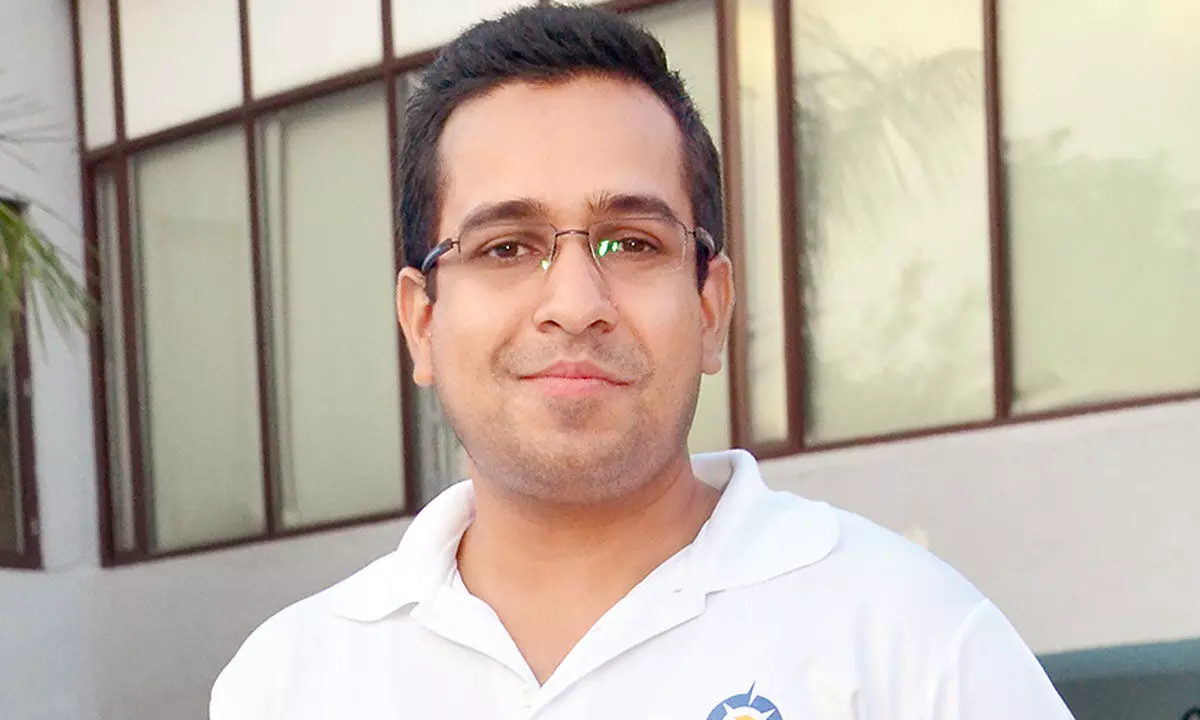GoBOLT wants to change logistics ecosystem
Covers more than 100 cities with 10,500 trucks and 150 employees
image for illustrative purpose

Toronto-based tech-enabled fulfillment and last-mile delivery startup GoBolt is innovating the logistics sector through hybrid asset ownership models, cutting edge technology and extensive network. Its specially designed fleet ensures trucks run 1,000 km a day as compared to industry average of 250 km a day providing express delivery times.
GoBolt's marketplace tech platform has more than 5,000 impanelled trucks. In an exclusive interview with Bizz Buzz, GoBOLT's Co-founder & CBRO Sumit Sharma shares his views on working with marquee brands in e-commerce, FMCG, FMCD and industrial sectors. The company runs business as one highly integrated network of people, technology and physical assets across the country.
GoBolt's revenue for 2015-16 (six month) stood at Rs 1.1 crore, and in 2016-17 clocked we clocked Rs 16 crore in revenue. It is expected to double its revenue by the end of this fiscal year
Mumbai: What was the idea behind the inception of GoBolt?
GoBOLT wants to innovate and change the ecosystems of entire logistics sector through Cutting edge technology networks, IoT and by using AI/ML technologies. We always dreamt of being a full fledge end-to-end (E2E) logistics solutions provider helping companies solving their logistics and supply chain challenges, improvising their efficiency and reducing their TAT.
We wanted to create one of its kind collaborative products to include the entire logistics ecosystem on to one platform. It is targeted towards the cost center of the company and aims to turn it into value center by automation and digitization of logistics and supply chain.
What is your success story so far?
Established in 2015, GoBOLT is a new age logistics player focussed on transforming the Indian logistics industry into an express supply chain, enabled through the use of innovative technology solutions. Founded with an investment of Rs 1 crore, put in by the founders and a seed investor, GoBolt was growing and continue to with a massive pace.
Within less than two years into since beginning of operations, the GoBOLT already has a fleet of 4,000-plus empanelled trucks, servicing 60 cities, and a list of 20 corporate clients. GoBolt's revenue for 2015-16 (six month) stood at Rs 1.1 crore, and in 2016-17 clocked we clocked Rs 16 crore in revenue. It is expected to double its revenue by the end of this fiscal year.
GoBOLT now is covering more than 100 cities with 10,500 trucks and 150 employees.
What technologies GoBolt is using for enhanced customer support?
Every vehicle is equipped with dual GPS device real time info flowing to customer dashboard via APIs. Hundreds of fleets equipped with digital locks which can be operated at the warehouse with use of OTP to secure goods. Doing pilots on use of ADAS (advanced driver assistance system) & DMS driver monitoring system, in commercial vehicle fleet with leading giants (help in accident reduction) Full-fledged control tower where we are getting update to anything and everything related to goods. So if are any delays or exception due to vehicle damage or availability of drivers, real time info is conveyed to customers and immediate action is taken.
What are the major tie ups and collaborations during the last one year?
We have partnered with Google to go deep into their ecosystem, GT for audit, Gartner for reports, Google Cloud Partners for cloud services, created exhaustive ecosystem of courier partners, GPS service providers, and transporters to enable ease of business. Paragon Partners funding of $20 million in 2021 to invest in technology and to expand in other geographies, associated with big law firms like Shardul Amarchand and Mangaldas, Khaitan & Co.
What are the leading trends that supported your growth?
Demonetisation, government policies like e-way bill, infra spending of government (on highways and all which helped transportation business as low as it increased reach, reduced delivery time); Covid as people moved to forming more agile and tech-enabled model, and realised system not rigid should be flexible.
What are your future plans?
We aim to number one trusted and lynchpin in the industry. We also want to expand in other geographies like Middle East, North America, and Asia-Pacific regions.

